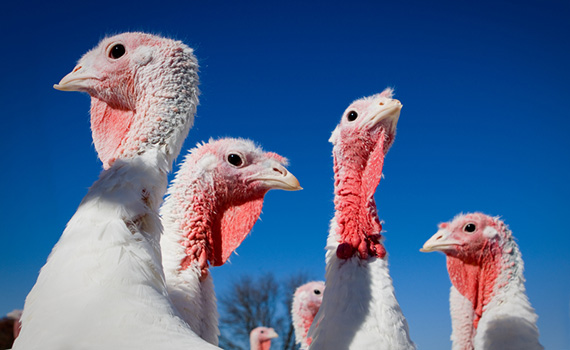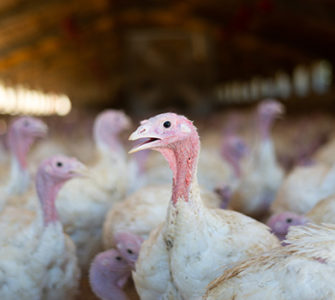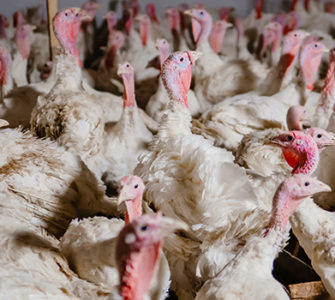E. coli vaccine reduced colibacillosis lesions and mortality in turkeys
A modified-live Escherichia coli vaccine for turkeys was demonstrated to be safe and effectively reduced the incidence of lesions and mortality due to colibacillosis, according to recent studies.
Colibacillosis in domestic poultry results in high morbidity, carcass condemnation and mortality, says Tura Bru, DVM, a senior scientist with Zoetis, sponsor of the studies.
“The most severe manifestation of colibacillosis is septicemia, characterized by pericarditis, perihepatitis, airsacculitis and salpingitis,” she says.
Poulvac® E. coli is a modified-live vaccine used to help prevent mortality and lesions due to colibacillosis. The vaccine contains a 078 strain of E. coli, but the aroA gene has been deleted to prevent it from causing disease.
In the US, Poulvac E. coli is licensed for use in chickens and turkeys. In Europe, the vaccine was registered for use only in chickens, but European turkey producers had expressed considerable interest in Poulvac E. coli because they had to rely on antibiotics for colibacillosis control; this interest was the impetus for European safety and efficacy studies that led to registration of the vaccine for use in turkeys, Bru explains.
Safety, efficacy studies
Bru and colleagues conducted their studies with specific-pathogen-free turkeys that received the vaccine on day 1 and at 21 days of age.
In an efficacy study with 80 turkeys, investigators vaccinated half the group and gave the other half a placebo of sterile water. Clinical signs were not observed in any of the vaccinated turkeys.
The two groups were challenged with virulent E. coli 078 and commingled.1 The first two days after challenge 56% of unvaccinated turkeys and 35% of the vaccinated turkeys died due to colibacillosis.
During the seven-day observation period after challenge, 61.5% of the remaining unvaccinated turkeys and 34.4% of vaccinated turkeys were strongly depressed (Figure 1) or died due to colibacillosis, Bru says.
In safety studies involving 165 turkeys, the investigators isolated E. coli aroA from cloacal swabs and in the environment up to seven days after vaccination, indicating the vaccine is actively shed in feces early after vaccination, but there was no replication,2 Bru says.
“We concluded that Poulvac E. coli is safe for turkeys because no colibacillosis lesions were observed after vaccination; the vaccine can also effectively help reduce lesions from the disease as well as mortality,” says Bru, who presented the findings at the 2015 World Veterinary Poultry Association congress.
This article contains information on veterinary products based on international registration dossiers. The registered indications as well as safety and efficacy assessment for specific products may vary with local regulations and approvals. Always refer to the product label specific to your market for usage guidelines. Product and trademark registrations may vary by country. Contact your Zoetis representative for availability.
[1] Data on file, Study Report No. B815R-ES-14-371, Zoetis LLC.
[2] Data on file, Study Report No. B913N-ES-13-283
Posted on February 7, 2017


















